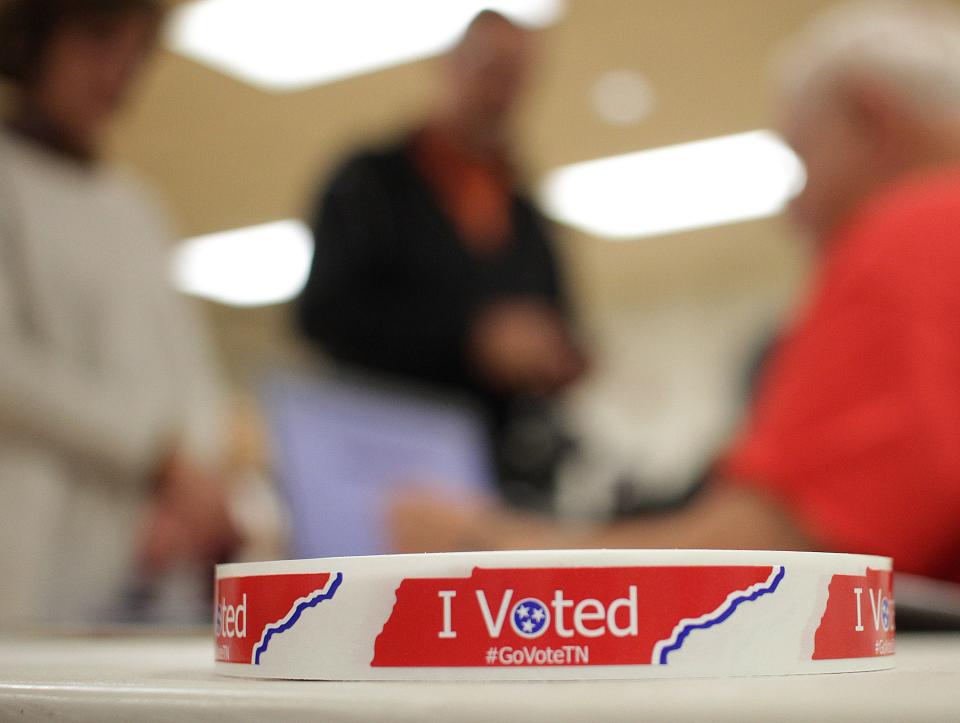Tennessee Supreme Court to hear felon voting rights restoration case
The Tennessee Supreme Court agreed last week to hear arguments in an ongoing lawsuit over reinstating voting rights to residents with out-of-state felony convictions.
Tennesseans with prior in-state felony convictions can restore their rights in a few ways, including by having their citizenship restored by fulfilling their obligations through paying court costs and restitution. In theory, the same pathway is open to everyone equally.
But some newer Tennesseans with out-of-state felonies never had court costs to pay and court documents show they've struggled to prove their eligibility. The lawsuit, filed in 2020, argues the distinction is illegal and should be blocked in the courts.
Overturning Roe v. Wade: Supreme Court poses a devastating threat to women’s rights | Opinion
Southern Baptist Convention: Tennessee pastor returned to the pulpit after assaulting woman
Davidson County Chancellor Ellen Hobbs Lyle dismissed the case in October 2020 after denying an initial motion from the residents asking that the rules be changed before that year's August primary election. This announcement is the latest step in the appeals process
"Until the Plaintiffs meet the same requirements as Tennessee felons seeking reinstatement of their right to vote, Tennessee law does not require that Tennessee reach the same result as Virginia’s Governor or North Carolina’s Legislature — nor does the Tennessee Constitution," Lyle wrote.

Access to the polls was the focus of a flurry of litigation in 2020, and many of the lawsuits filed in state and federal courts are ongoing through appeals.
This case, named for lead plaintiff Ernest Falls, came after the governor of Virginia granted Falls clemency, restoring his full rights of citizenship under the laws of that state. Falls was still denied when he tried to register to vote in 2020 without a receipt proving he paid nonexistent fees.
A similar case, where Tennesseans who have paid all costs and argue the state's system for re-enfranchisement is illegally intricate and confusing, is still moving through federal court.
The court's schedule did not show the next scheduled docket as of Wednesday morning.

Tennessee's Secretary of State's office deferred comment to the Attorney General's office when reached by email. A spokesperson for the Attorney General's office declined to give a new comment but shared the March 2020 opinion that confirmed the state's interpretation of the law.
Reach reporter Mariah Timms at mtimms@tennessean.com or 615-259-8344 and on Twitter @MariahTimms.
This article originally appeared on Nashville Tennessean: Tennessee Supreme Court to hear felon voting rights restoration case

